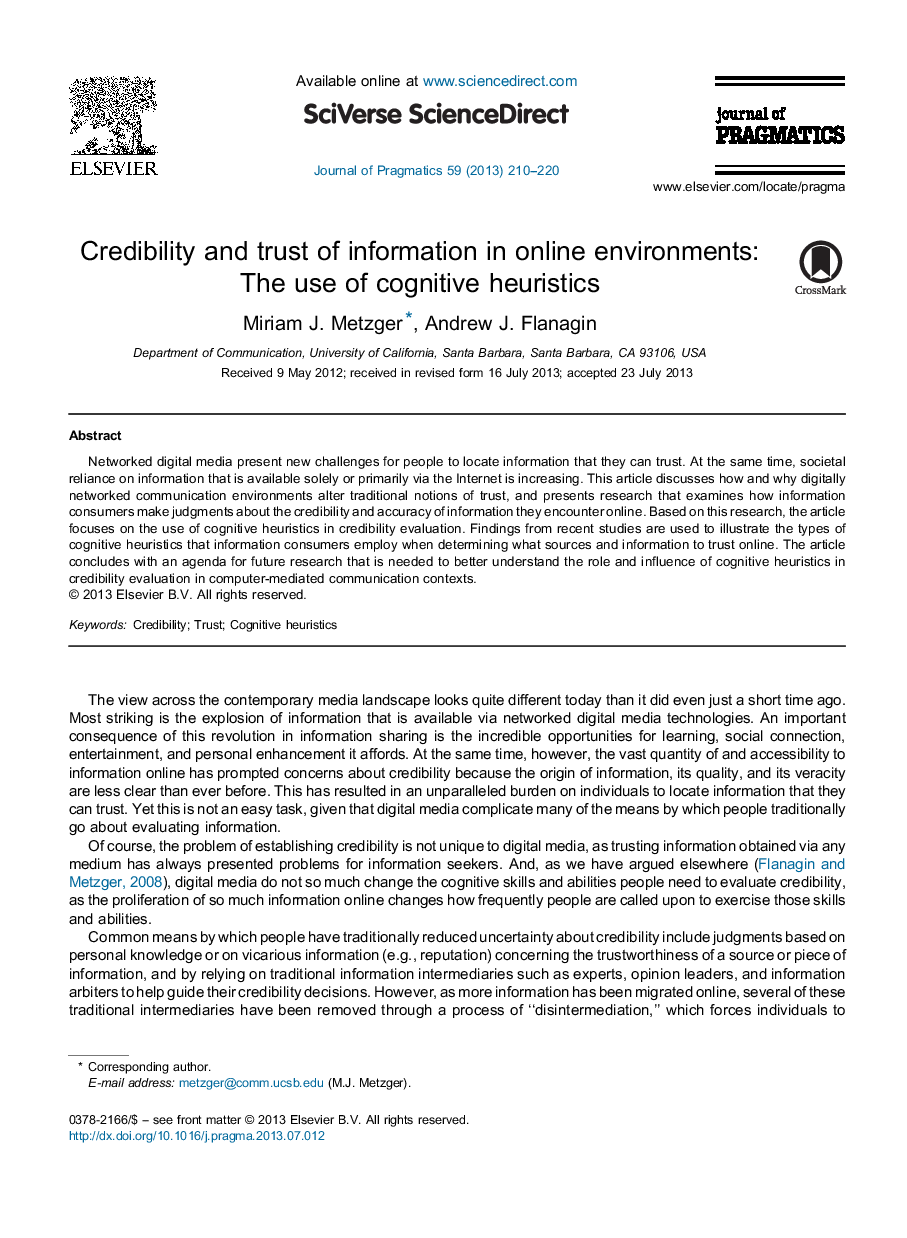| Article ID | Journal | Published Year | Pages | File Type |
|---|---|---|---|---|
| 932857 | Journal of Pragmatics | 2013 | 11 Pages |
Networked digital media present new challenges for people to locate information that they can trust. At the same time, societal reliance on information that is available solely or primarily via the Internet is increasing. This article discusses how and why digitally networked communication environments alter traditional notions of trust, and presents research that examines how information consumers make judgments about the credibility and accuracy of information they encounter online. Based on this research, the article focuses on the use of cognitive heuristics in credibility evaluation. Findings from recent studies are used to illustrate the types of cognitive heuristics that information consumers employ when determining what sources and information to trust online. The article concludes with an agenda for future research that is needed to better understand the role and influence of cognitive heuristics in credibility evaluation in computer-mediated communication contexts.
